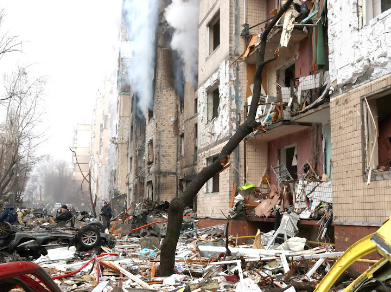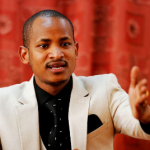Leaders from seven of the world’s wealthiest nations are convening in Italy for a summit aimed at agreeing on a plan to utilize frozen Russian assets to generate billions of dollars in aid for Ukraine.
The US proposal, if implemented, could potentially raise $50 billion annually for Ukraine while exerting additional economic pressure on Russia.
In addition to addressing the Ukrainian crisis, the G7 summit is expected to cover a range of global issues, including the conflict in Gaza, migration, economic security, and advancements in artificial intelligence (AI).
The timing of the summit is notable, as several leaders, including Rishi Sunak, Emmanuel Macron, and Joe Biden, are facing electoral challenges in their respective countries. Prime Minister Sunak of the UK is grappling with declining poll numbers ahead of next month’s general election.
President Macron’s party in France recently suffered a significant defeat to the far-right National Rally in elections to the EU parliament, prompting him to call for snap parliamentary elections. Canadian Prime Minister Justin Trudeau and US President Joe Biden are also facing potential electoral setbacks in the near future.
Italian Prime Minister Giorgia Meloni has expressed confidence in her country’s government, touting it as the strongest among the G7 nations following a successful performance in the recent European elections.
The proposed US plan for Ukraine involves granting Kyiv funds through a loan secured by the interest on the $325 billion of Russian assets that were frozen by the G7 and EU after Russia’s invasion of Ukraine.
While confiscating these assets from Russia and transferring them to Ukraine is prohibited under international law, the plan aims to provide much-needed financial support to Ukraine, which is grappling with economic challenges amid the ongoing conflict.
Ukrainian President Volodymyr Zelensky is expected to attend the conference and sign a new security arrangement with the US. With President Biden and other Western leaders facing electoral pressures, there is a sense of urgency to deliver assistance to Ukraine while there is still political will and momentum to do so.
In addition, Mr. Sunak is poised to announce support of up to $309 million for Ukraine’s energy and humanitarian needs. Prior to departing for Puglia, he emphasized the necessity for allies to be “decisive and creative in our efforts to support Ukraine and end [Russian President Vladimir] Putin’s illegal war at this critical moment.”
However, the fragile political landscape in many G7 nations has led some observers to temper their expectations about what can be achieved at the summit.
Natalie Tocci, director of the Italian Institute for International Affairs, cautioned that “if anything will come out of this summit, it’s the fear of a catastrophe playing out before our eyes,” citing the potential rise of new governments led by figures such as Donald Trump in the US and the far-right in France.
Other topics on the summit agenda include the climate crisis, migration from Africa to Europe, the conflict in Gaza, and discussions surrounding artificial intelligence (AI). Notably, Pope Francis will make history by becoming the first pontiff to attend a G7 summit, where he will address the subject of artificial intelligence.
The Pope has previously advocated for global regulation of AI, warning of its potential threat to ethics and human rights.



